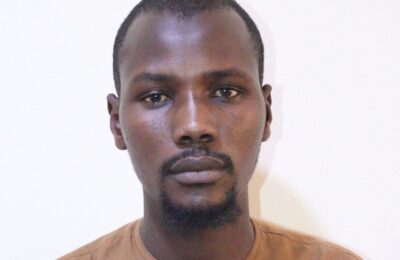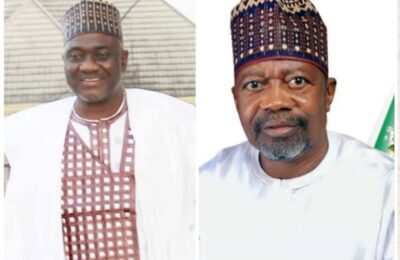If mercy can be extended to the dead, what of the living who are daily executed by hunger? In a nation where the grave receives forgiveness and the living receive famine, mercy itself becomes a political theatre—beautifully staged, but void of bread. Nigeria’s recent presidential pardon, approved by the Council of State and signed by President Bola Ahmed Tinubu, forgave 175 souls, among them the eternal names of Herbert Macaulay, Maj-Gen. Mamman Vatsa (retd), and the Ogoni Nine. It was a moment carved in the language of history, a gesture toward the ghosts of injustice. But as the ink dried on the pages of clemency, thousands in the countryside continued to sleep on empty stomachs, their crimes being only that they were born poor in a rich land.
A nation that pardons the dead while ignoring the living dances between irony and cruelty. What moral architecture excuses hunger but condemns forgotten trials? The ghosts of history do not eat; it is the breathing, barefoot Nigerians in Kogi, Benue, Sokoto, and the creeks of Bayelsa who now need mercy’s touch. Forgiveness is divine, yes—but what divinity dwells in a government that forgives the bones of the past but leaves the flesh of the present famished?
From the beginning, the symbolism was praised. The Council of State described it as a gesture of reconciliation—an attempt to heal old wounds and cleanse the moral ledger of the republic. Macaulay, the father of Nigerian nationalism, convicted twice by the colonial administration in 1913 and 1928, was posthumously absolved. So were Maj-Gen. Mamman Vatsa, the poet-soldier executed in 1986 for alleged treason, and members of the Ogoni Nine, whose blood still stains the oil-soaked earth of the Niger Delta. The move was hailed as “revisiting historical injustice.” Yet, in the same breath, Nigeria’s hungry revisited the injustice of another kind: the injustice of an empty bowl.
“I hear they are forgiving people who died before my father was born,” said Mrs Ruth Musa, a widowed farmer in Niger State, her eyes hollow like drought. “But who will forgive my children’s hunger?” Her words are not metaphor—they are the national anthem of those forgotten by governance. The countryside of Nigeria has become a vast courtroom where the poor stand trial for existing. The evidence against them is their tattered clothes and their empty farms.
It is tragic that in 2025, Nigeria’s most persistent sentence is not imprisonment but starvation. Hunger is now the unseen warden that supervises millions. Villages once thriving with yam barns now lie like ghost markets; farmers migrate to cities only to become urban beggars. When a country allows its citizens to die by hunger while forgiving the sins of history, then clemency itself becomes a cruel satire.
The inverted morality of our politics is that symbolic justice receives more attention than substantive compassion. To pardon Macaulay is noble, but to feed the living Macaulays in Nigeria’s villages would be holier. To forgive Vatsa is historic, but to empower today’s Vatsas—young writers, teachers, and thinkers trapped in joblessness—would be redemptive. Nigeria’s presidential pardon should not end at the archives; it must walk into the countryside, where forgiveness means food, and mercy means livelihood.
No civilization ever collapsed because it forgave too much; nations collapse because they forgot the hungry. In the rice belts of Kebbi and the yam corridors of Benue, mercy is not an abstract word—it is a plate of garri shared between siblings at sunset. It is the government remembering that to govern the stomach is to govern the soul. When leadership replaces bread with rhetoric, hunger becomes rebellion in waiting.
The pardon of Herbert Macaulay revisits our colonial pain, but the hunger in our villages renews that colonial experience in modern form. The empire may have left, but its legacy of inequality remains, perfected by our own hands. A woman in Idah, Kogi State, told me, “When they talk about independence, I laugh. We are still colonies of hunger.” Her laughter was not joy—it was the exhaustion of hope.
Nigeria’s countryside is a cemetery of unfulfilled promises. Roads are eaten by erosion; health centres exist only in budget lines; and schools rot while politicians debate history. Every administration speaks of the poor as statistics, but rarely as citizens. The paradox of the pardon is that it humanizes the dead while dehumanizing the living. If mercy is truly presidential, it must be practical—felt in the price of food, in the flow of irrigation, in the presence of fertilizer.
In a village near Okene, I met Ibrahim, a 24-year-old graduate of agricultural economics, now tending goats. “They forgave people who didn’t steal,” he said, “but I can’t get forgiveness for being unemployed.” His statement captures the irony of this republic: the dead are honoured for history; the living are punished by it.
President Tinubu’s gesture was no doubt well-intentioned. He sought to unite the nation by acknowledging its fractured past. But what unites a hungry nation is not remembrance—it is sustenance. A bowl of rice will do more for national unity than a presidential signature on a parchment of history. Symbolism may pacify intellect, but food pacifies pain.
Nigeria’s tragedy lies not in the absence of policies but in the famine of priorities. The Prerogative of Mercy should not be confined to courtrooms and cemeteries; it should be extended to the fields, to the broken markets, to the mothers who trade sleep for survival. Mercy should have legs; it should walk where hunger lives.
Our leaders love grand gestures—they prefer the noise of history to the silence of empathy. They announce forgiveness for the dead but forget that mercy unshared is cruelty prolonged. The pardon of Macaulay was needed, but the forgiveness of hunger is overdue. The countryside is Nigeria’s conscience; it bleeds quietly while the cities pretend.
In the hamlets of Ebonyi, the cassava farmer who cannot afford fertilizer asks for no gold, only grace. In the deltas of Rivers State, the fisherman whose river has turned black from oil spillage prays not for statues, but for fish. Their cries are petitions of mercy, unsigned yet loud.
True governance begins when a leader understands that hunger is treason against humanity. No insurgency can destroy a nation faster than famine. When a man’s stomach becomes empty, his allegiance shifts to whoever can fill it. Rural hunger is not just an economic failure—it is a security threat wearing a beggar’s face.
Nigeria’s government must therefore evolve the concept of pardon into policy. Let mercy become a budget line. Let forgiveness translate into rural electrification, irrigation, and food subsidies. Let the energy that forgave the dead now feed the living. We have enough history to honour; what we need is compassion to distribute.
The greatness of a nation is not measured by how many it forgives, but by how many it sustains. When America forgave its veterans, it built homes and provided healthcare. When Rwanda forgave its past, it invested in agriculture and unity. Nigeria must understand that mercy without development is only sentiment; it redeems nothing, repairs nothing, and feeds no one.
In the poetry of governance, mercy is a verb. It acts, it builds, it heals. The Council of State must now translate that pardon into national policy—perhaps a “Rural Mercy Initiative,” dedicated to erasing hunger in the countryside. The energy of forgiveness should fertilize the land, not just the archives.
A wise nation does not wait for the dead to forgive before it learns to feed the living. If Nigeria can revisit the case of Herbert Macaulay after a century, it can also revisit the cases of its forgotten villages. The same spirit of restitution should guide the government to release captive resources for rural revival. To pardon history but starve humanity is to build a shrine for ghosts while crucifying citizens.
The farmer’s hoe is his own declaration of independence, but the government’s negligence has rusted it. The youth’s diploma is his citizenship, but hunger has turned it into a prop for begging. Nigeria must wake from the sleep of symbolic politics. Mercy is not a press statement—it is a plate of food on a child’s table.
Let us imagine a different kind of Council of State—one that gathers not to forgive ghosts but to feed the poor. Let the roll call include not Herbert Macaulay, but the mothers of Nasarawa, the orphans of Borno, the farmers of Idoma land. Their crimes? None—except that they trusted a system that forgot them.
If a government truly loves its people, it will pardon poverty, not just prisoners. It will build silos, not statues. It will remember that the poorest citizen is more important than the richest ghost. A pardon to the dead is poetry; a pardon to the living is policy.
As dusk fell over Kogi’s plains, I met an old man named Ocholi, who said softly, “They say the president has forgiven history. Tell him to forgive my hunger too.” His voice trembled like dry harmattan grass, but his words burned with clarity. That is the gospel the nation needs—not of religion, but of responsibility.
The pardon of Herbert Macaulay will echo in textbooks, but the pardon of hunger will echo in eternity. A nation that can feed its countryside will never fear rebellion. Let mercy leave the marble halls of Aso Rock and walk barefoot into the villages. Let it smell of yam, of sweat, of millet, of dignity.
History will not remember how many people Nigeria forgave; it will remember how many it fed. To honour the dead is noble, but to feed the living is divine. The Council of State must rise beyond the romance of history and embrace the realism of humanity. For a hungry citizen does not read decrees; he reads his stomach.
The presidential pardon has opened a conversation, but it must now open silos, not just scrolls. A symbolic gesture may heal memory, but only food can heal misery. Nigeria’s truest reconciliation will not happen in the chambers of power but in the kitchens of the poor.
When the countryside begins to smile again, when the yam barns rise like temples, when the rivers regain their silver, and the children sleep without hunger’s cry—then and only then will the pardon be complete. Until then, the nation remains an unfinished forgiveness, a republic that feeds its ghosts but starves its people.
So let the presidency now write a new decree—not of words, but of welfare. Let mercy become bread, not broadcast. Let the pardon reach the living, not the tombs. Let the countryside taste the meaning of governance. And let history say: Nigeria once forgave the dead—but then it learned to feed the living.
– Inah Boniface Ocholi writes from Ayah – Igalamela/Odolu LGA, Kogi state.
08152094428 (SMS Only)




